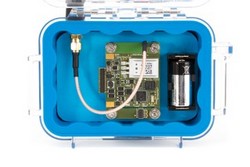Pioneering research in global sensor network development
Networked control systems (NCSs) easily combine global information to make intelligent decisions over large physical spaces. With today's technology, NCSs generate vast amounts of raw data that will surpass current storage and processing capabilities. New developments in compressive sensing, distributed compression, cooperative transmission networks, networked control and information theoretic security hold promise. With EU funding, the TEASCONE (Enabling technologies for large-scale sensor and control networks) project brought together experts in these fields to identify and provide solutions for challenges in compression, transmission, networked control and security. Overall, the goal was to develop large-scale NCSs to meet the demands of the future. In all, 8 exchanges took place, 4 each for early-stage researchers and experienced researchers, totalling nearly 15 months. Secondments were implemented at partner universities in Australia, Germany, Sweden and the United Kingdom. Researchers made significant contributions to the fields of compressive sensing, data compression, anytime communication and networked control communications. Over the project's 4-year duration, 119 journal and conference papers were published. The TEASCONE team went far beyond its initial stated objective to develop a detailed plan for how to design and implement a large-scale NCS. Project partners were able to successfully design, prototype and test a microsatellite-based global sensor network. This new wireless network retrieves data from remote sensors using very-low-cost user terminals and a network of low earth orbit microsatellites. TEASCONE performed cutting-edge research in NCSs. This should result in the enhancement of many potential applications spanning a wide range of industries.







